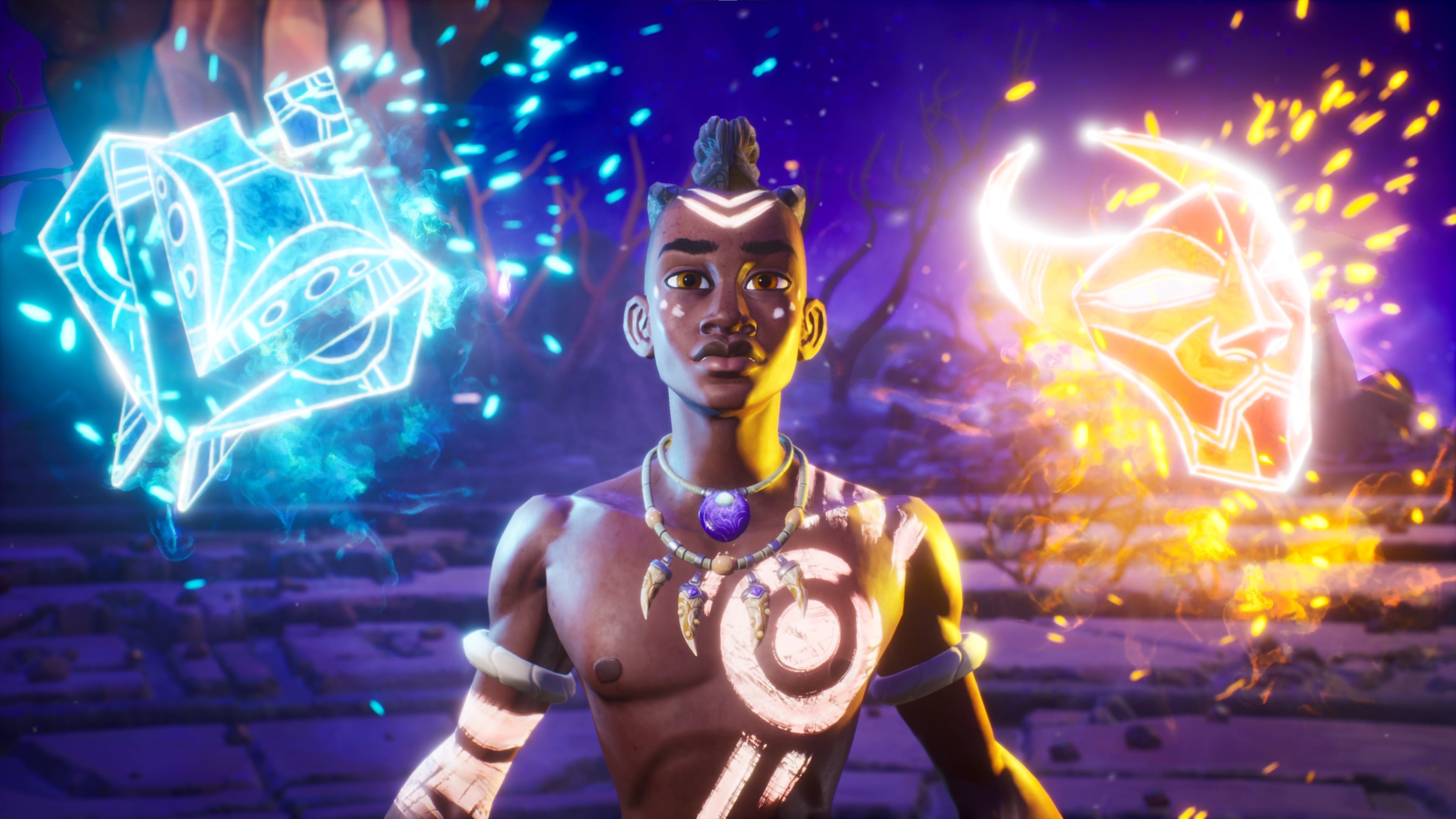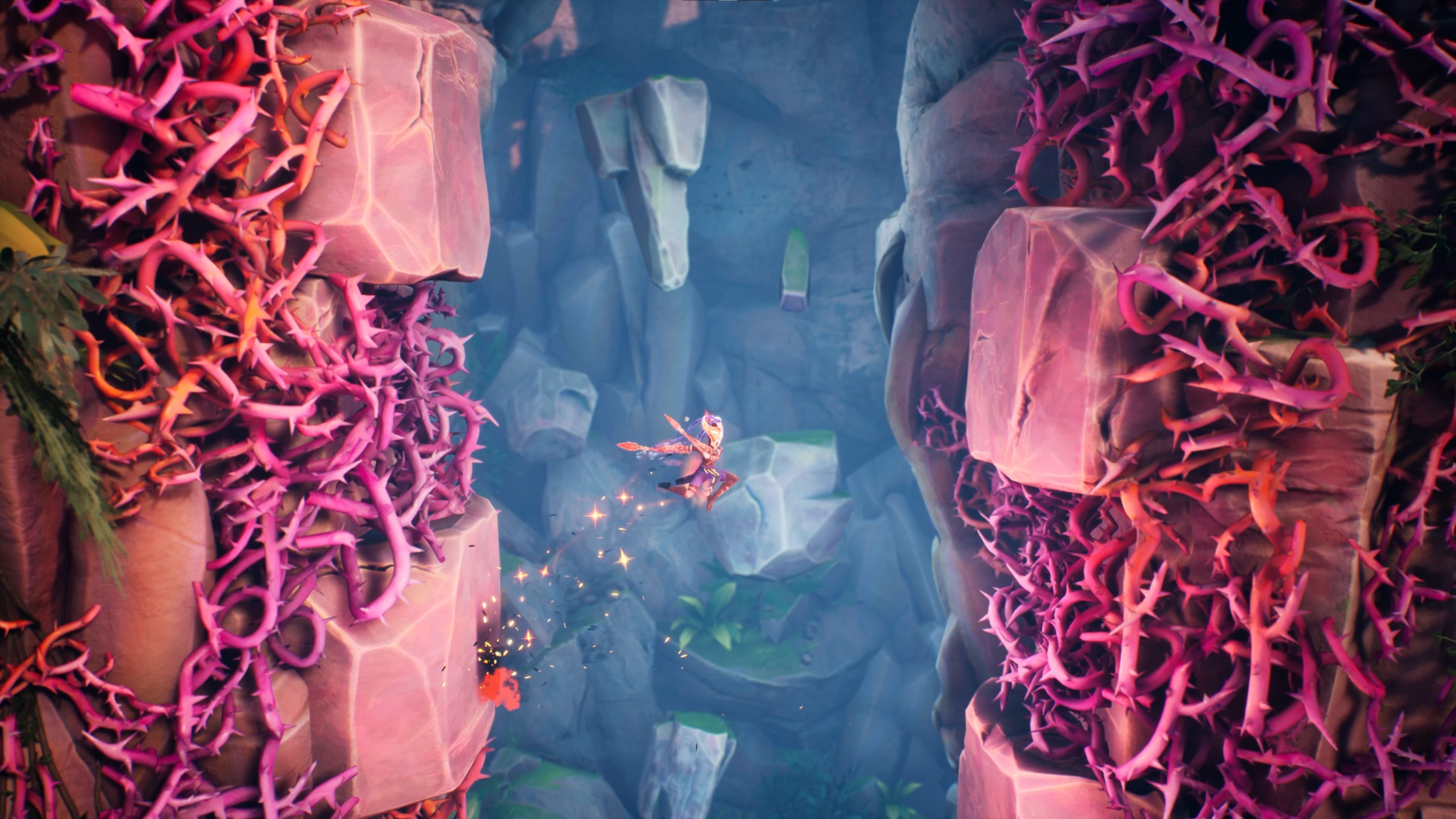
In 2023, I don't believe there are many people with even a passing interest in video games who'd question the medium's transformative power. This year alone, the likes of Baldur's Gate 3, Alan Wake 2, Marvel's Spider-Man 2, and The Legend of Zelda: Tears of the Kingdom have showcased the very best in video game narratives, across a wide range of platforms, genres and storytelling methods. With the utmost respect to more traditional forms of media – film, TV, books, and radio, for example – video games are, without laboring an obvious point, unique in their scope for storytelling, simply because they put you into the protagonist's shoes; wherein their stories cannot progress without your input.
Tales of Kenzera: Zau not only epitomizes all of the above, but it is a story unto itself. It's the debut video game project of Surgent Studios, a transmedia outfit founded by actor Abubakar Salim, whose name you may recognise among the credits in everything from Sky One series Jamestown, to HBO Max's Raised by Wolves, Ridley Scott's historical blockbuster Napoleon, and Charlie Brooker's Black Mirror. If you played Assassin's Creed Origins, you'll know Salim as lead character Bayek of Siwa, a role that bagged him a BAFTA Breakthrough Brit award, and ultimately inspired him to form his own development studio and create his first video game.

That game is Tales of Kenzera: Zau – and if you've ever experienced grief, or know someone who has, and are likewise interested in video games with a story to tell, then it should be on your radar. Although weaving its own heartfelt fable, Tales of Kenzera: Zau is inspired by the untimely death of Salim's father, and, as a lifelong video game player himself, the only genre Salim felt could do his story justice was Metroidvania.
"I think because of what I was aiming to do, what I wanted to build with Zau, people got it," says Salim. "For me, it's not just about creating a fun and beautiful experience that people can play and feel the kinetic energy of it all, but also be able to give a new perspective in looking at grief. I mean, it is sad. And there is a weight to it. But it's also messy, it's chaotic; you can have some days where you feel completely happy, and then the next day hits you. That's the kind of experience I wanted to share."
"With that in mind, Zau is a Metroidvania, and that was always important to me because it's a perfect genre to explain grief, right? You take a character, you throw them into a world they have no idea about. They have to learn about everything, essentially, as they go along, going back and forth, through areas and elements, gaining the tools that the world provides, and they have to, somehow, make sense of it. In reality, you can never get over grief, it will always be challenging, and I think this genre speaks to that so well."
Seminal storytelling

"I very much come from a background of stoic men, so the idea of sharing that moment with my dad, and feeling that we were both enjoying and connecting – that was beautiful."
A self-confessed "massive fan" of Garry's Mod, Salim says he still speaks to friends from the game's community today, and likewise cherishes still-active friendships forged during his formative years in World of Warcraft. Storytelling has always been a driving force for Salim, and he credits playing video games from a young age for strengthening his desire to tell stories in his work.
These qualities, Salim reckons, were first instilled by virtue of pass-the-pad sessions with his father in the '90s, playing the earliest Sonic the Hedgehog games on the Sega Mega Drive (Genesis, for those reading Stateside), and cherishing a sense of closeness in these thoughtful moments that would stay with him forever. "I very much come from a background of stoic men," Salim says, "so the idea of sharing that moment with him, and feeling that we were both enjoying and connecting – that was beautiful."
That sentiment is directly reflected in Tales of Kenzera: Zau, whose narrative explores the love between a father and son, and the transformative power of loss. Filling the shoes of the eponymous Zau, you assume the grief of the protagonist while embarking on their quest for spiritual healing – across gorgeous, mystical 2.5D realms, while flirting with the ungoverned cosmic powers of the warrior shaman. As revealed at The Game Awards, Tales of Kenzera: Zau is on course for an April 23, 2024 release date – on PS5, Xbox Series X and S, PC (via Steam and the Epic Games Store), and Nintendo Switch – which Salim says is hugely exciting for him and his family.
"I do think there's sometimes an expectation for men in larger families to soldier on when bad things happen," says Salim. "It's that sense of stoicism, you know, this thing happened, now soldier on. It's the whole 'keep calm and carry on' thing, right? But when I told my family what I was doing they were like: 'Yeah, good on you'. They understood this was my way of processing things, and my formula for dealing with it."
"With my mum, she didn't understand it to begin with. And then I showed her the early parts of the trailer, and I explained that the game is going to be in Swahili, it brought her to tears. She could see that my dad was at the center of everything, and through that she's being respected and seen. I don't think you can ever get over or even accept grief, you just learn to deal with it."
"When I started this process, I asked myself: what would I give to bring my dad back? Like, what would I sacrifice? I didn't have the answer. And I still don't, but, actually, I'm kind of alright with it. Because if it wasn't for him passing away, I wouldn't be where I am today. I wouldn't have formed the studio, I wouldn't have a baby, I wouldn't have the family that I love to bits, and I wouldn't be in the position or have the perspective that I do today. It's almost like I wouldn't, or even couldn't, give that up for that moment. Because again, that's the point of it, right? You grow and you do everything you can to move on."

Throughout our conversation, the thing that impresses me most about Salim is his openness to explore the themes and emotion driving this clearly defined passion project. Assuming that passion transfers into Tales of Kenzera: Zau itself – and I have no reason to believe otherwise – then it's likely to be something pretty special, both as a Metroidvania video game, and an interactive and persuasive exploration of such a universal and sensitive subject. My last question for Salim, then, is a simple one: What would his father say if he could see him now?
"Why didn't you write a book instead?" he says, between bouts of laughter. "I think he would be proud. Not just because of the accomplishment of making this game, but mainly because I'm using what he gave me from a very young age to essentially share something that I love – which is telling stories."
Check out the best Metroidvania games to explore to absolute completion







